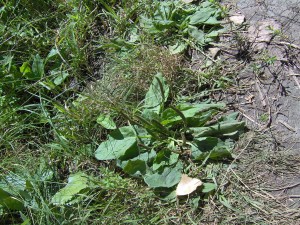There’s a dominant tradition in our culture that there are certain absolute assumptions we have to make to think about our experience at all. This is ‘metaphysics’ in the sense that many philosophers use it: but this is not just a matter for philosophers, as this tradition also affects our thinking about everyone’s immediate practical beliefs. If you see this dominant tradition in the light of embodied meaning and in a recognition of the specialised roles of the two brain hemispheres, though, it can be recognised as narrow, unnecessary and unhelpful rather than inevitable in the way it presents itself. I want to argue that the conditions of our experience and thought are not absolute, and that the assumptions we make about it, though pervasive, are embodied ones. They are a matter, not of necessity, but of confidence.
What are these absolute assumptions that we are supposed to be making? They are assumptions about space and time; about our own existence and that of objects and others; about numbers, maths and logic; about causality and the regularity of ‘nature’; and perhaps even about our freewill and values. I cannot sincerely doubt the existence of the table in front of me, it is claimed, nor even that when I communicate with others (as I am doing now), these others have minds. Once absolute assumptions are supposedly established in this way, it becomes easy enough to apply them to other areas by further reasoning. For example, if I can’t help assuming absolutely that nature is regular, it’s a short step to assuming the independence of ‘facts’ or even values based on an appeal to ‘nature’. Dogmas line up in mutually supportive positions with a click.
To show this whole approach to be basically wrong does not need convoluted reasoning so much as a little reflective bodily awareness. Take a short walk across the room, or whatever space you happen to be in now. What is ‘space’ as you’ve just experienced it? It’s something you move through and relate to through your body. What is ‘time’? It’s experienced in relation to your pulse, which may have raised slightly as you moved from a sitting position to walking. What are the ‘existent’ objects you encountered? The ones you presumably avoided bumping into in the space you traversed. What are ’causes’ as you experienced them? The movement of your muscles set off by nervous impulses, which in turn led you to move across the room.
As you move across the room you were, I hope, confident in these assumptions. From long practice of walking you were confident in your ability to stay upright, avoid obstacles, traverse space and reach your immediate goals. These are not abilities we generally reflect upon. We take them for granted as part of our embodied experience, but nevertheless they have a basic meaning in that experience rather than anywhere beyond it. Our early childhood experience helped to form that confidence.
Nevertheless, embodied confidence is not absolute. Indeed, the reason we can be confident is because it’s not absolute. That’s because it involves not just a representation in the left hemisphere of the brain (which may seem to be absolute at a particular moment) but also an alertness in the right hemisphere (which specialises in responding to new stimuli). It’s just possible that as I walk across the room, I may encounter an unexpected obstacle: perhaps it could be something as mundane as a child or pet’s forgotten toy that I might slip on, or perhaps a sudden and unexpected weakness in my body may stop me being able to walk across the room in the way I expected. My body retains the capacity to respond to such surprises. Of course, the biggest threat to my experience of time, space, existence and so forth is death, and that may also come unexpectedly, removing all these taken-for-granted conditions at a stroke.
I am justified (again in an embodied, not an absolute sense) in my day-to-day confidence. However, if I insist on absolutising that confidence and turning it into metaphysics, I am not at all justified. The conditions of time, space, existence etc. may or may not be absolute in any sense beyond my experience – but since I can only experience things through my experience, I have no possible way of knowing. These things may just be constructions of ours, or they may not. However, it seems obvious that the absolutisation of them is just a construction of our left hemispheres.
This matters because it provides a constant basic reinforcement of our tendency to give a disproportionate and absolute status to the facts or values we believe in and identify with at the moment. Perhaps I believe that my love for my partner will be eternal, or that Tories are the scum of the earth, or that Buddhism is the ultimate true religion. We may have some evidence from experience to support any of these sorts of beliefs, but to absolutise them and make them a basis of conflict, we wheel in metaphysics. These truths, we assume, are self-evident. Well, I’m afraid that whatever your ‘truths’ are, and however self-righteous you are feeling about them, they are subject to sceptical doubt, Staying in touch with that doubt is important for arguing your case confidently rather than dogmatically.
Picture: gymnast on balance beam by Volker Minkus (CC-BY 3.0)


